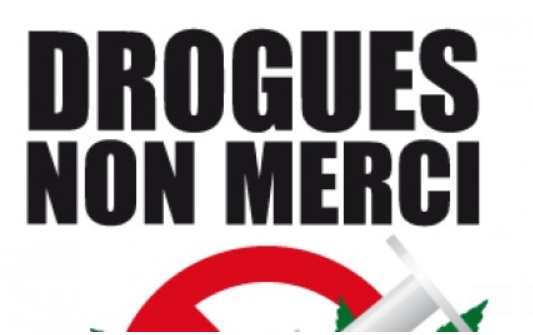One in two young people has already smoked cannabis by the age of 17, and nearly one in ten uses it regularly.*
Thousands of young people from the azure region fall into the vicious cycle of drug use every year.
This is a sign of a deep malaise among our generation. If there are dealers, it means there are consumers!
This chronic cannabis use is alarming. It has become widespread and is reaching worrying proportions. It is a drug that is cheaper and easier to find than before.
Let’s stop with the naivety and sugar-coated speeches. Young people are using drugs behind their parents’ backs, who often find it hard to believe. Let’s stop turning a blind eye and face the reality!
Schools are no longer sanctuaries: they exhibit the same levels of consumption as outside. Demotivation, memory loss, difficulty concentrating, dropping out of school, depression, etc.: the havoc these substances wreak on teenagers is terrifying.
Drugs are a scourge that is infiltrating our schools and universities. There’s no need to go miles to find them; they are everywhere: inside and around all establishments, in boarding schools, and in playgrounds. Dealers don’t stop at the school gates; sometimes, they are even students at the institution! Parents don’t send their children to middle school or high school to buy or sell cannabis!
It is urgent to strengthen health education, prevention, monitoring, and support.
Some schools contact us because supervisors are witnessing these transactions firsthand.
We are calling on these school leaders, parent-teacher associations, and school nurses who would like to benefit from preventive actions.
Now approved by the National Education system, we will launch a major anti-drug plan at the beginning of 2019: health professionals, former users, prevention ambassadors, and police officers will motivate young people and their parents to become aware of the issue.
Quentin Matton, president of the InterCampus G-Generation association


